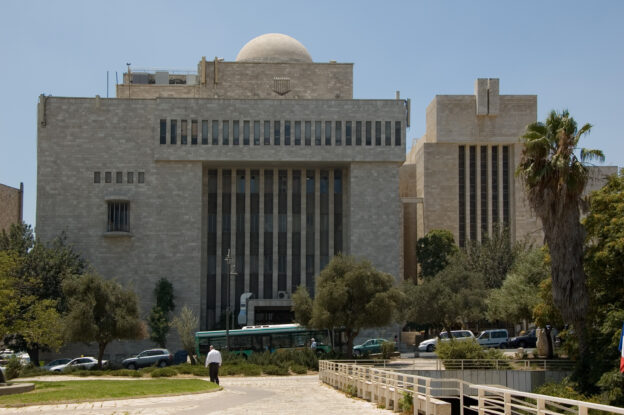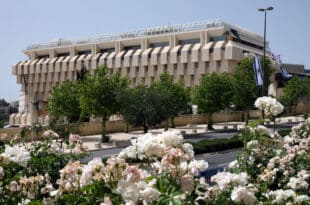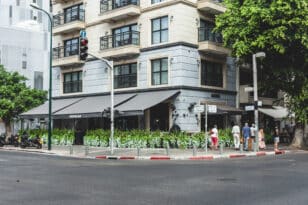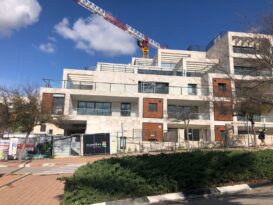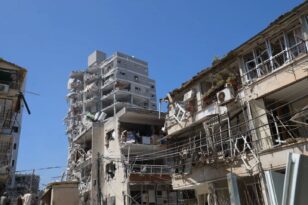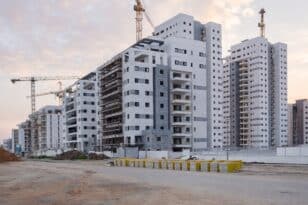According to a Calcalist report, JNF is in advanced negotiations with American real estate tycoon Gary Barnett over a proposed agreement that would see the organisation immediately transfer its rights to approximately 500 dunams of land in Jerusalem. In return, it would receive ownership of lands currently housing major public institutions, including the Israel Museum and the Great Synagogue. The landmark Jerusalem land deal also includes a provision allowing tenants of about 1,000 housing units on the land to extend their leases by an additional 50 years, through approximately the year 2100.
By Dror Neer Kastel, Nadlan Center
Advanced negotiations for a major Jerusalem land deal are currently underway between the Jewish National Fund (JNF/Keren Kayemeth LeIsrael) and Gary Barnett, American real estate tycoon and owner of Extell, a New York real estate development company. According to the report published by Calcalist on Sunday, JNF is expected to immediately relinquish the rights to approximately 500 dunams of land in central Jerusalem to Barnett. In return, JNF will receive ownership of land that houses buildings of national and historic importance, including the Israel Museum, the Great Synagogue, the Khan Theater, and more. According to the draft agreement, the lease rights of around 1,000 families currently living in buildings on land owned by Barnett will be extended for an additional 50 years, until around the year 2100.
This Jerusalem land deal marks another chapter in a saga spanning nearly a decade. It began in 2016, when the Greek Orthodox Church sold hundreds of dunams of land in central Jerusalem neighborhoods such as Talbiya and Nayot to the private investment group Nayot Komemiyut, led by the Ben David family. Originally owned by the Church, these lands were leased to JNF in 1951, shortly after the establishment of the State of Israel, for a term of 49 years with an option to extend for another 49 years. After the initial term ended, JNF extended the leases until 2050–2052, depending on the area.
Over the years, residential neighborhoods were built on these lands, with the residents serving as subtenants of JNF. The Church’s sale of the land to Nayot Komemiyut took homeowners by surprise, as they assumed JNF would continue leasing the land and suddenly understood that they could potentially lose rights to their apartments by 2049. In January 2023, Barnett purchased the land rights from the Ben David group for NIS 750 million, marking the most expensive real estate deal ever signed in Jerusalem. In May 2024, Barnett announced that residents could purchase full ownership of the land for NIS 5,000 per square meter, compared to the then-market rate of NIS 45,000 per square meter. However, many residents rejected the offer.
500 Dunams to Be Transferred for Immediate Development
According to the newly revealed draft, JNF will immediately transfer rights to approximately 500 dunams of leased land—worth billions of shekels—to Extell. This would allow Barnett to begin advancing development plans for thousands of housing units without waiting for the lease to expire in 2050. In return, Barnett will transfer to JNF ownership of land currently home to public institutions of national importance. He will also extend the lease period for existing residents by an additional 50 years, in exchange for a payment of about 5.5% of the land’s value.
The report reveals that in recent months, intensive negotiations were held between JNF’s board of directors, led by Chairwoman Ifat Ovadia-Luski, and the management of Extell Israel. These talks led to a confidential memorandum of understanding, which states that “in order to secure the status of subtenants and reclaim a significant portion of these lands, home to public institutions, parks, and gardens of considerable public value, JNF will terminate its three main lease agreements for the properties.”
These lands include The Valley of the Cross (excluding areas designated for development), The Charles Clore Garden, The Menachem Begin Heritage Center, The Khan Theater, Bible Hill (excluding areas designated for development), The Israel Museum, The Great Synagogue, and part of Heichal Shlomo, which will be transferred to JNF. The Jerusalem land deal does not prevent Extell from promoting urban renewal projects on the lands, but it does require the company to reach agreements with current residents. Under the emerging agreement, residents will need to pay 5.5% of the land’s value to extend their sublease until the year 2100.
Extell: “Special Interests Are Fueling an Unnecessary Conflict”
In response to the ongoing developments in the Jerusalem land deal, Extell issued the following statement: “Without addressing specific claims, Extell is engaging in dialogue with all relevant parties to reach a mutually agreed-upon solution that ensures a win-win for everyone involved. As the landowner, Extell is the only party capable of offering a secure and permanent solution—one that would save JNF billions of shekels in public funds by avoiding the need to extend the lease, while also allowing leaseholders to remain in their homes beyond the end of the current lease period and immediately benefit from an increase in property values, which have declined significantly in recent years.
“Extell is already offering a highly attractive proposal directly to the leaseholders, many of whom have accepted it. This is the optimal solution, granting ownership of the apartment quickly, securely, and—as many have already realized—with the greatest economic benefit, all within the framework of an urban renewal process. Unlike certain special interest groups pushing for unnecessary conflict for their own private agendas, whether through legislation that infringes on private property rights and only delays a solution, or through years-long, needless legal battles, Extell is committed to advancing its proposal through cooperation and by safeguarding all interests and rights in order to reach the best possible outcome.”
JNF responded: “JNF is not managing this complex issue through the media, due to the many sensitivities involved. JNF is devoting considerable resources, even at this very moment, to address this matter and reach the best possible outcome, carefully considering all the complexities and factors, including the public interest and, above all, the well-being of the residents and subtenants.”

Nadlan Center is Israel’s leading real estate news and knowledge platform in Hebrew, created for industry professionals. Founded by experts in the field, it delivers in-depth, up-to-date coverage on urban renewal, planning and construction, taxation, and housing policy — tailored to the needs of developers, investors, planners, and financiers. In addition to its widely read news content, Nadlan Center hosts major industry events, professional conferences, and training programs that support the growth and development of the Israeli real estate sector.
Learn more: https://www.nadlancenter.co.il
